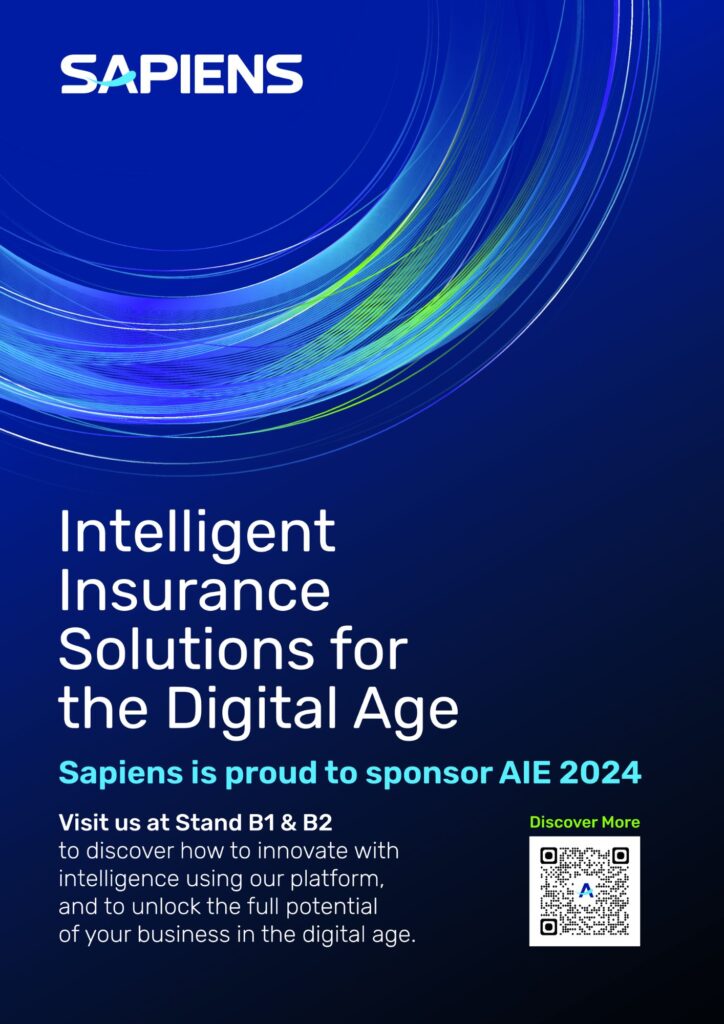
By Alex Zukerman, Chief Strategy Officer at Sapiens
Artificial Intelligence (AI) is playing a transformative role in the insurance industry. AI, has become a topic of global interest and rapid evolution, holding significant promise for reshaping various sectors, including insurance.
AI encompasses a broad spectrum of capabilities, but in the context of insurance, it primarily revolves around turning large volumes of structured and unstructured data into meaningful insights. Zukerman categorises AI into two main areas: traditional AI and generative AI.
Traditional AI – This involves algorithmic capabilities to analyse data and make predictions. For example, machine learning models can be trained to predict future risks, identify key performance indicators (KPIs) that influence business processes, and enhance underwriting accuracy. This level of AI has been used in the industry for years to improve risk scoring, underwriting responses, and personalised offers. By analysing vast datasets, these models can recommend tailored products to potential clients, enhancing customer satisfaction and business efficiency.
Generative AI – The advent of generative AI, powered by large language models, marks a significant shift. Unlike traditional AI, generative AI can understand and respond to human interactions more naturally. This reduces the need for extensive training, as the models can process and summarize large volumes of text or documents quickly and accurately. Zukerman describes this as a “co-pilot” activity, enhancing the efficiency and precision of tasks performed by claims handlers, underwriters, and customer service representatives.
Practical Benefits for Customers
To illustrate the practical benefits of AI, Zukerman provides a case study of handling large commercial claims. These claims often involve extensive documentation, including police reports, assessor reports, and accident reports. Traditionally, a claims manager would need to sift through thousands of pages to assess a claim. Generative AI can summarise these documents instantly, allowing claims managers to ask specific questions and receive precise answers without reading the entire document. This process enhances efficiency by 30 to 40 percent, streamlining the claims process and improving accuracy.

Intelligent Insurance Solutions for the Digital Age.
Visit us at Stand B1 &B2
to discover how to innovate with intelligence using our platform,
and to unlock the full potential of your business in the digital age.
Broader Applications – The benefits of AI extend beyond claims management. AI can also revolutionise customer service, new business onboarding, and underwriting processes, all of which are document intensive. Furthermore, AI facilitates seamless and automated configuration of insurance platforms. By automating the translation of specification documents into system configurations, AI reduces errors and significantly improves operational efficiency.
AI Collaboration – One of the reasons we chose to go deep with our Microsoft relationship is not only the Azure and the cloud capabilities, but the way Microsoft looks at Gen AI with their involvement and acquisition of open AI. With Microsoft turning generative AI into a critical part of its platform, they have many resources, technical, functional, and architectural, fully embedded in this journey. They are very much together with us in the lab thinking of what the right architecture is to build the Gen AI solutions within the Sapiens platform, how to utilise them, how to connect our needs to the Microsoft roadmap on Gen AI, and make sure that we are getting to a joint approach here.
For us, when we look at it, we call it the power couple. Microsoft is very powerful in the Gen AI technology concept, architecture, and engineering, while Sapiens has deep experience, industry knowledge of insurance technology and knows what our customers are looking for. The combination of these two frictionless forces is very powerful and we see a lot of Progress on this front due to this partnership.
Since we see the LLM technology, and the AI in general, as a truly transformative technology, it is critical for us and in the foundation of our approach, to insert it into the platform and our solutions that are delivered to customers, encouraging them to use them and benefit from them.
The Future of AI in Insurance
As AI technology continues to evolve, Zukerman emphasizes the importance of flexibility and adaptability. AI solutions must be dynamic, allowing insurers to innovate and adapt to changing market conditions. The partnership with Microsoft ensures that Sapiens remains at the forefront of AI advancements, providing customers with a platform that is not only current but also a vehicle for future growth.
AI is poised to revolutionise the insurance industry by enhancing efficiency, accuracy, and customer satisfaction. Through strategic partnerships and a commitment to innovation, companies like Sapiens are leading the way in integrating AI into their platforms.

